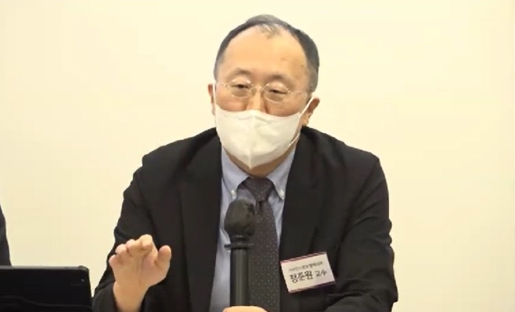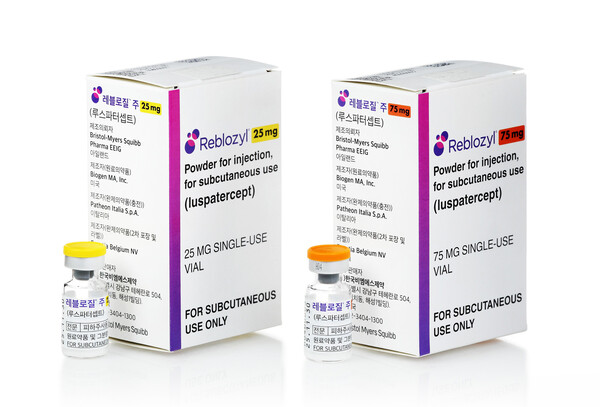Amid the shortage of blood donation over the recent years, drugs like BMS’ Reblozyl -- which aims to alleviate the strain on the blood bank while reducing the burden on anemic patients with myelodysplastic syndrome with ring sideroblasts (MDS-RS)-- are critical, said an expert at a recent press conference.

Bristol Myers Squibb (BMS) held a media session on Monday at the Korea Chamber of Commerce and Industry to elucidate the role of Reblozyl (ingredient: luspatercept) as the first approved erythrocyte maturation agent in reducing the disease burden of blood transfusions in the treatment of MDS-RS.
MDS is a malignant blood disease that occurs in hematopoietic stem cells in the bone marrow, due to a decrease in red blood cells, white blood cells, and platelets. The disease is closely associated with aging, and the incidence rate increases sharply in people over 60.
Professor Cheong Jun-won of the Hematology Department at Severance Hospital elaborated on the current medical unmet needs of the MDS market.
Overall, the number of MDS patients in Korea is reported to be about 6,000, of which 3,636 are in their 60s or older, accounting for more than 60 percent of all patients, he said. Of them, MDS-RS patients are estimated to be around 150 in Korea.
Anemia occurs in about 89 percent of MDS patients, mostly leading to transfusion dependence, thereby exacerbating the transfusion burden, but there is a lack of effective treatment options after erythropoiesis-stimulating agents (ESA) fails.
ESAs are mainly used for the primary treatment of patients with low-risk MDS anemia. However, only 30-60 percent of patients respond to ESA, he went on to say.

Still, he maintained that even if ESA treatment is effective in the early stages, blood transfusion dependence can later occur with 90 percent of MDS anemia patients requiring red blood cell transfusions, and a significant number of patients chronically dependent on these transfusions.
Patients with MDS anemia who are dependent on blood transfusions need to visit medical institutions and receive blood transfusions at least once a month. However, frequent blood transfusions can cause excessive iron accumulation in organs such as the liver and heart, and elderly patients aged 60 or older, have a poor prognosis, making lifelong blood transfusion very burdensome.
In this regard, BMS head of Hematology, Kim Ji-hyun, introduced Reblozyl, which is approved in Korea since May last year to treat anemia in adults with MDS-RS or anemia in adults with beta-thalassemia. It aims to reduce the transfusion burden in patients by promoting cell maturation in the later stages of the erythrocyte production process.
MEDALIST was a randomized, clinical trial conducted on MDS-RS patients ranging from very low to moderate-risk that receive regular red blood cell transfusions, to confirm the effectiveness and safety of Reblozyl compared to placebo.
The primary outcome measure was blood transfusion independence for more than 8 weeks and the secondary outcome measure was blood transfusion independence for more than 12 weeks.
Elaborating on Reblozyl’s completed clinical trial study, Kim explained, “Reblozyl achieved a 33 percent red blood cell blood-free period lasting more than 12 weeks after 48 weeks, significantly higher than 12 percent in the placebo group.“
This is expected to reduce the number of blood transfusions and reduce the burden of patient transfusion associated with MDS, the BMS official said.
Related articles
- BMS launches AML maintenance treatment in Korea
- BMS Korea focuses on blood cancer, 'trying hard' to launch CAR-T treatment
- BMS Korea scores nod for rare oHCM heart disease treatment
- BMS Korea wins insurance coverage for myelofibrosis drug Inrebic
- 'BMS' Camzyos to offer new treatment options to oHCM patients'

